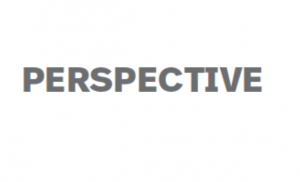Rebels without a conscience
On the ninth of August, I saw a sign. It was not a metaphorical sign, but a mundane handwritten sign duct-taped to a traffic cone. It was in the Tumwater Hill area, at the northern intersection of 5th Avenue and Bates Street, and it read: “Tumwater Hill Automobile Zone: Welcome to THAZ.”
Adjacent was another sign that read: “OCM PROTEST VEHICLES ONLY.” Stretched across the entrance to 5th was a row of traffic cones. Behind the traffic cones, a bevy of vintage automobiles were on display, hoods popped and engines idling. Amid this exhibition of chrome and exhaust fumes, a veritable throng of people milled about in unmasked defiance. They appeared to be largely white and male. Judging by their vintage automobile hobby, they were presumably well-to-do.
So what is the message here? And what were they protesting?
To my mind, the message reveals attitudes that are common in the United States, and it is precisely that commonality which makes these attitudes worth looking at.
First, the individuals who put this car show/protest together chose to appropriate rhetoric that arose out of the Black Lives Matter protests in Seattle. They applied it to an event that was an unabashed celebration of high-end private property. Far too many incidents have shown that even a suspected or fabricated infringement on private property can result in the murder of a black person with no significant consequences for the murderer.
Invoking rhetoric that originated from Black Lives Matter protests in service of a lavish display of wealth and power is grotesque. It signals the privileging of private property over black lives. This is not an unusual message, but a terribly common and very American message. Consider this possibility as among the reasons why private property may get defaced or damaged during Black Lives Matter protests. If private property is privileged over black lives, why should private property be respected?
The second part of the message has to do with the implications of holding an event fetishizing upscale private property in the midst of a raging pandemic. Flouting both the mask ordinance and the restriction on gatherings, this protest, as the organizers have chosen to denominate it, was not about rights. Rather, it was a refusal to do what is right because it is inconvenient and interferes with the personal desires of individuals. And if those desires endanger public health, then that is the public’s problem, and not any individual’s responsibility.
This conduct occurs not in isolation from but in relation to our capacity to act as moral agents whose actions have profound consequences for other living beings. That the individuals in question were refusing to wear a mask, rather than unable to do so, is obvious from their decision to mingle in close quarters while holding a completely unnecessary event solely to glorify their property at the expense of public health.
To protest is to make a declaration; to declare is to clear up, to make evident. And what do these protesters make evident in their messaging? That it is not for civil rights nor human rights that they will protest, but for their privilege.
If you are going to protest during a pandemic, protest for something that is actually worth dying for. Black Lives Matter. Your automobiles do not.
Timothy Murphy lives in Tumwater, where he is daily lacerated by savage indignation. He employs a bicycle and a pair of legs for his outings and has never owned a motorcar.
Be First to Comment